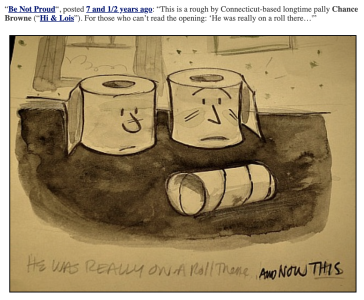But not in theatres, unfortunately. Reactions from last night’s SXSW debut screening assert that it’s emphatically a film to see half-drunk from an eighth-row seat, sprawled.
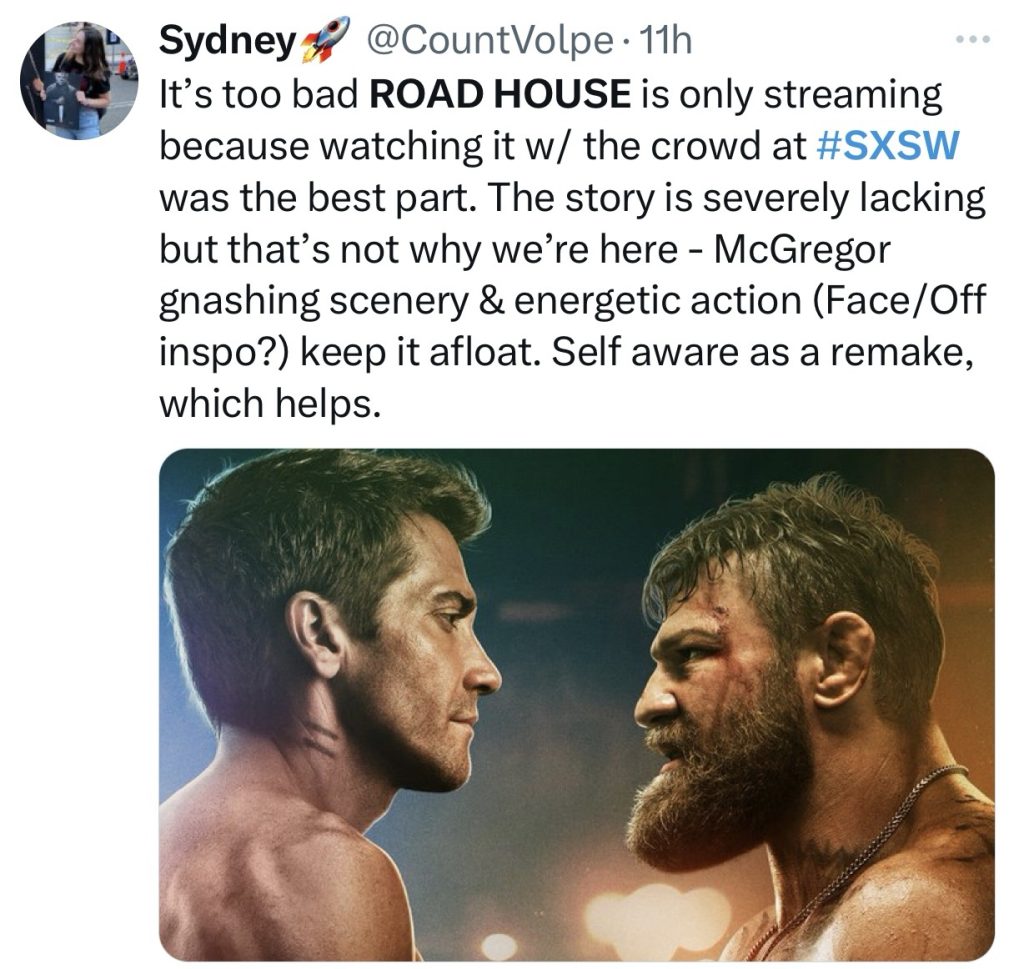
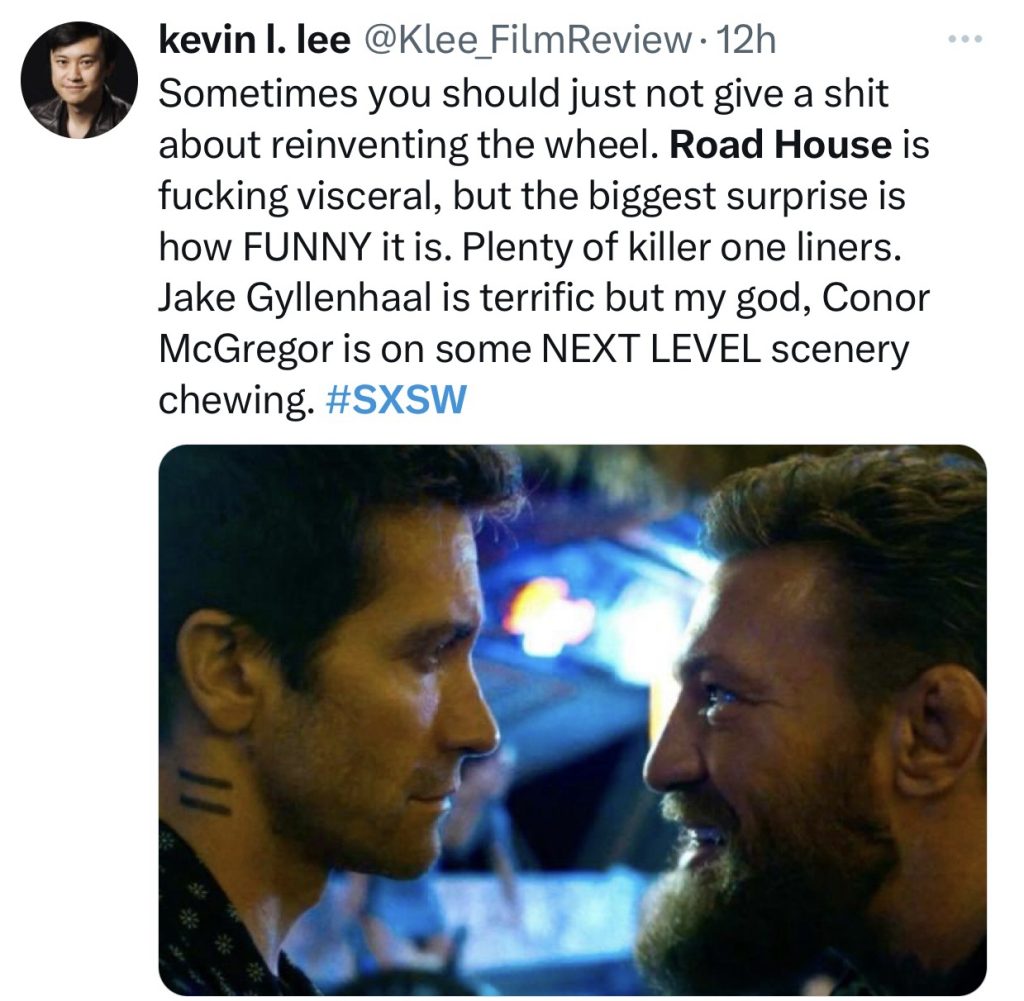
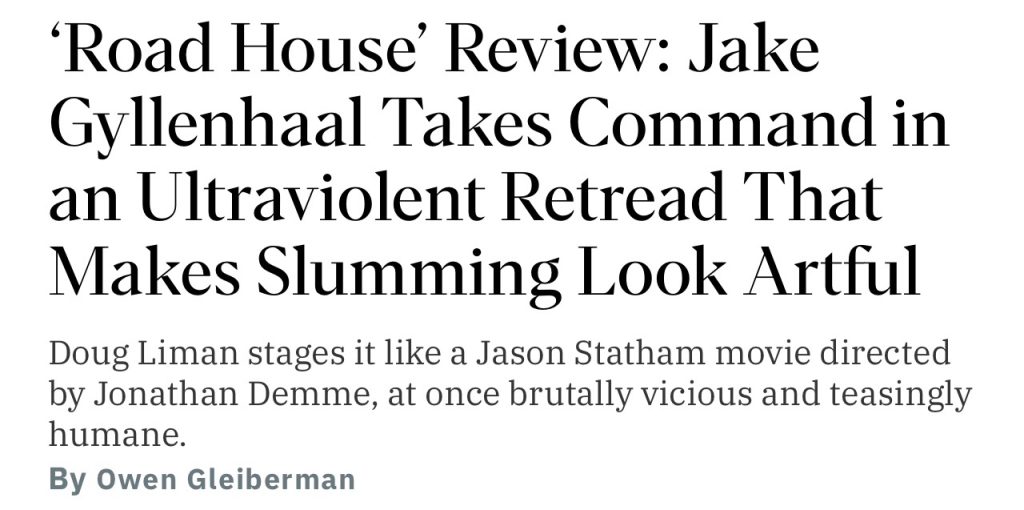
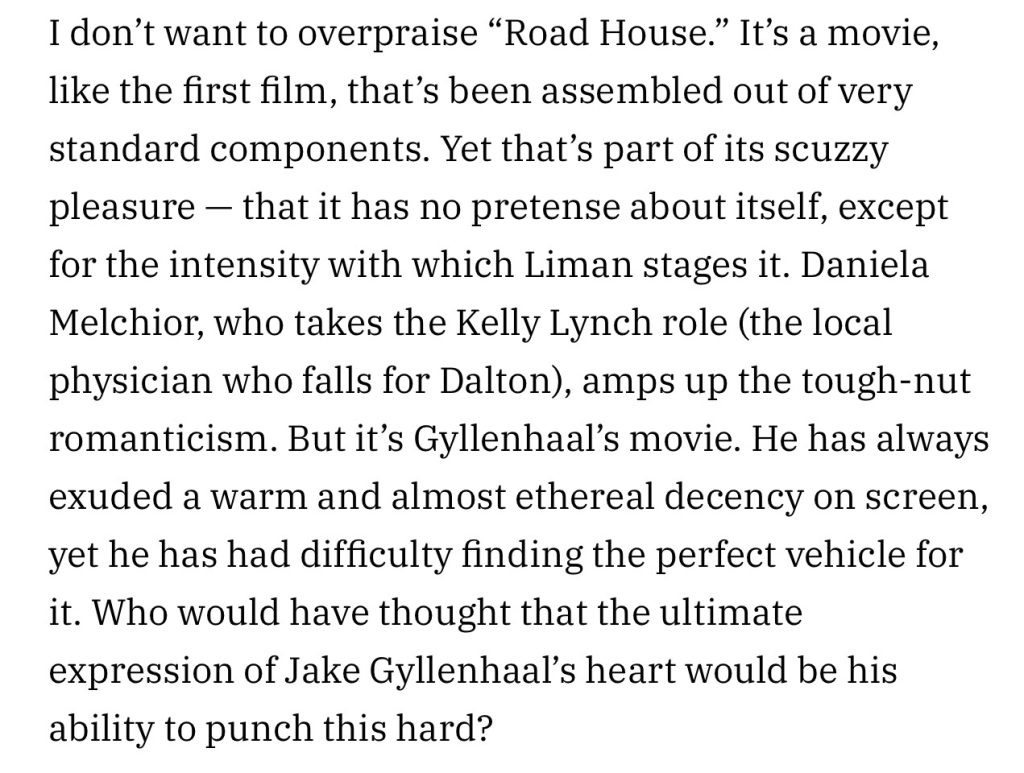
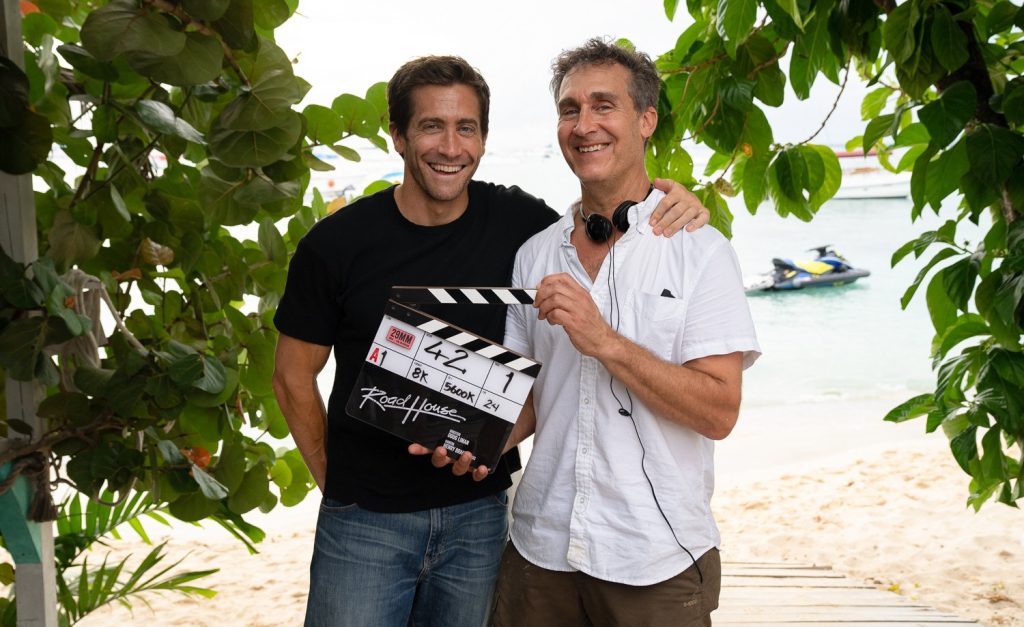

But not in theatres, unfortunately. Reactions from last night’s SXSW debut screening assert that it’s emphatically a film to see half-drunk from an eighth-row seat, sprawled.






Frank Sinatra and Dean Martin attended game #3 of the 1959 World Series — Los Angeles Dodgers vs. Chicago White Sox. Construction of Dodger Stadium in Chavez Ravine had only begun a few months earlier and wouldn’t be finished until early ‘62, so the Dodger home games happened at the L.A. Colisseum. This was the first World Series played on the West Coast.
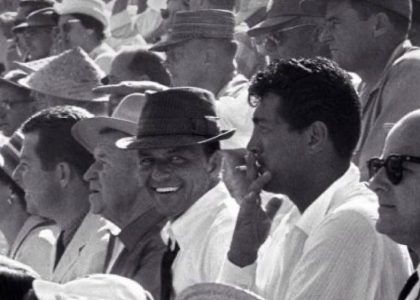
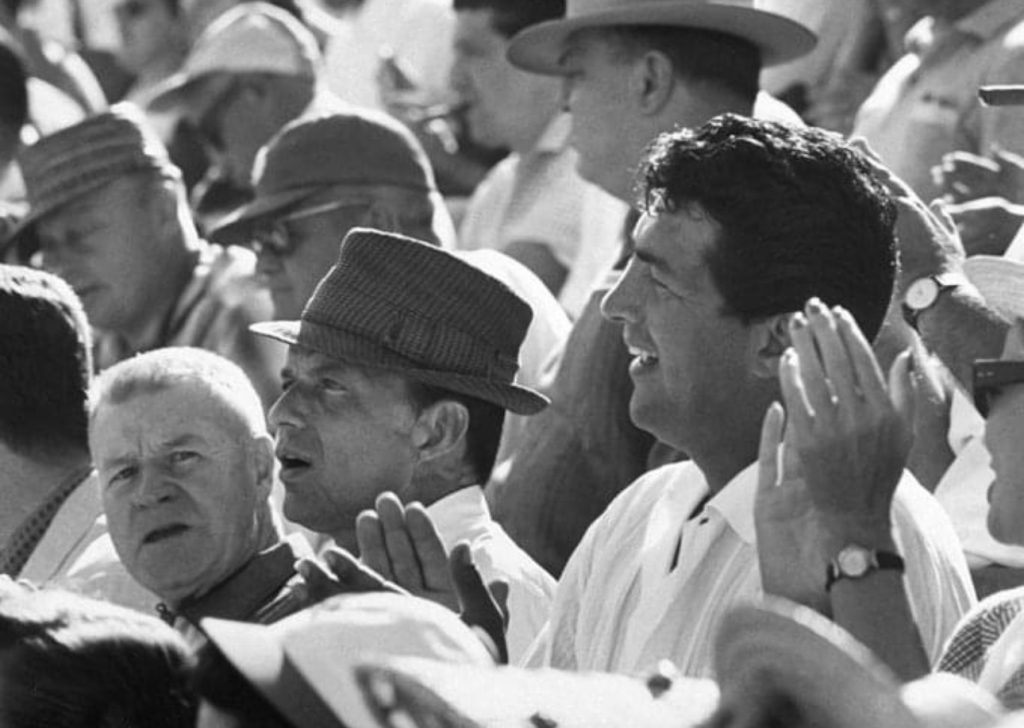
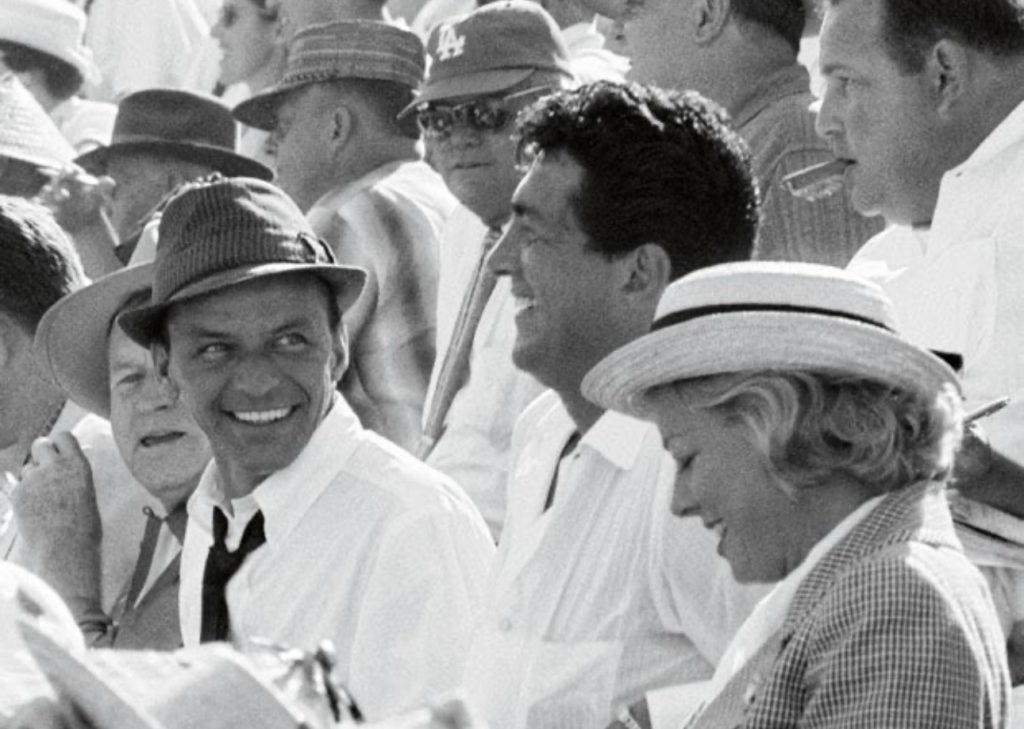
HE approves of The Last Days of Saigon, a forthcoming five-part series about numerous desperate, last-minute scrambles to save lives as North Vietnamese forces approached the South Vietnamese capital in April 1975.
Phillip Noyce will direct with showrunner Stuart Beattie having written major portions of the script.
Noyce’s The Quiet American (’02), a first-rate remake of the 1958 original, was set and shot in Vietnam. The Last Days of Saigon will reportedly be shot mostly in Australia with some location work set aside for Southeast Asia.
The series will presumably play like a dramatic narrative rendering of Rory Kennedy‘s excellent doc, Last Days in Vietnam.
“I felt profoundly moved and even close to choking up a couple of times while watching Rory Kennedy‘s Last Days in Vietnam yesterday at the Los Angeles Film Festival.
“The waging of the Vietnam War by U.S forces was one of the most tragic and devastating miscalculations of the 20th Century, but what happened in Saigon during the last few days and particularly the last few hours of the war on 4.30.75 wasn’t about policy.
“For some Saigon-based Americans it was simply about taking care of friends and saving as many lives as possible. It was about good people bravely risking the possibility of career suicide by acknowledging a basic duty to stand by their Vietnamese colleagues and co-workers and loved ones (even if these natives were on the “wrong” or corrupted side of that conflict) and do the right moral thing.
“Kennedy’s incisive, well-sculpted (if not entirely comprehensive) 98-minute doc is basically about how a relative handful of Americans stationed in Saigon — among them former Army Captain Stuart Herrington, ex-State Department official Joseph McBride and former Pentagon official Richard Armitage — did the stand-up, compassionate thing in the face of non-decisive orders and guidelines from superiors (particularly U.S. Ambassador to South Vietnam Graham Martin) who wouldn’t face up to the fact that the North Vietnamese had taken most of South Vietnam by mid-April and would inevitably conquer Saigon.
“It was obvious as hell to almost anyone with eyes and ears, and yet Martin and other officials, afraid of triggering widespread panic, wouldn’t approve contingency plans for evacuation until it was way, way too late. So the above-named humanitarians and their brethren decided it was “easier to beg for forgiveness than to ask permission” and did what they could — covertly, surreptitiously, any which way — to save as many South Vietnamese as they could.”
Hugh Grant to the aggressively shallow, plus-sized Ashley Graham during last year’s red-carpet segment: “The whole of humanity is here…it’s vanity fair” — an allusion to William Thackeray’s 1848 novel about the social pursuits of quarter-of-an-inch-deep, upper-crust types in London…diversions of the idle and undeserving rich, signifying absolutely nothing.
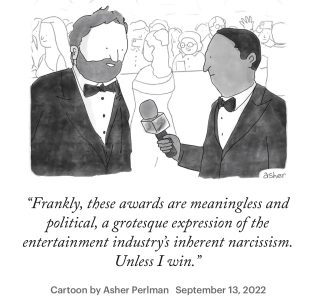
Hulu intends to produce an eight-episode series about the wrongful prosecution and incarceration of femme fatale Amanda Knox, who will be played by Margaret Qualley.
The problem is that Qualley is too old for the part. Knox was 20 when Italian authorities in Perugia became convinced that she might have murdered her roommate, Meredith Kercher, in late ’07 — Knox was a foxy young flower back then, freshly bloomed. The attractive Qualley is 30 and looks it — she might have passed for 20 five years ago, but she’s no spring chicken now.
On top of which the Knox story has been thoroughly mined and explored over the last 13 years or so. How many times can average Joe and Janes be expected to show interest?
In 2011 saw the release of a negligible Lifetime TV movie, Amanda Knox: Murder on Trial in Italy. Two years later came “Waiting To Be Heard”, a Knox-authored memoir. In 2014 Michael Winterbottom‘s not-so-hot Face Of An Angel opened. In 2016 a Netflix documentary, Amanda Knox, appeared. And then, of course, came Tom McCarthy‘s Stillwater (’21), which is largely based on the Knox saga.
The Hulu series is basically about Knox and husband Chris Robinson, who felt exploited by Stillwater, wanting to make some dough. They’re exec producing along with Qualley, Warren Littlefield, Lisa Harrison, Ann Johnson and Graham Littlefield. Monica Lewinsky is also exec producing.
“Knox vs. McCarthy Again,” posted on 8.8.21:
In an 8.6 HE riff titled “McCarthy Coolly Dismisses Knox Beef,” I linked to Janelle Riley’s 8.4 Variety interview with Stillwater director-cowriter Tom McCarthy.
McCarthy responded to the gist of Amanda Knox‘s complaint about Stillwater being fundamentally based on her 2008 murder conviction and subsequent exoneration, and her not having been consulted prior to filming. McCarthy also mentioned that her statements were somewhat undermined by the fact that she hadn’t yet seen the film.
Yesterday Knox posted a series of tweets about the McCarthy interview [excerpts after the jump], and made some reasonable points. However, she also tweeted the following:
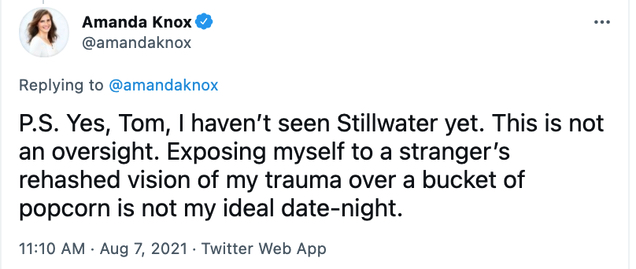
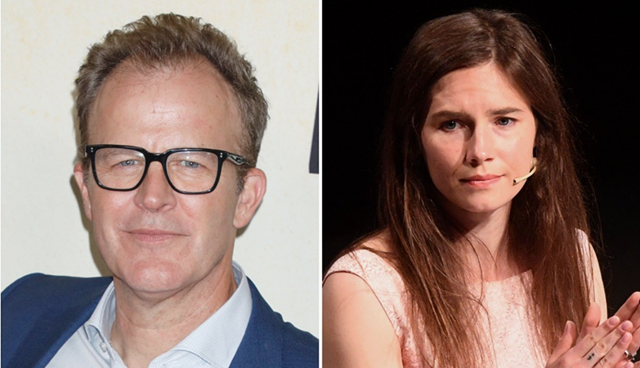
HE response to friendo: “Seeing Stillwater would not be an ‘ideal date night’ and that’s why she still hasn’t seen it yet? But she would be amenable to seeing it, she said earlier, if Focus would invite her to a screening. The date night remark was playful, but she invites skepticism.”
Friendo to HE: “You have to admit that it’s hilarious when, in being asked at the outset in the new interview what his inspiration for the movie was, McCarthy says, ‘One inspiration was a relative of mine who had a fractious relationship with her father. I asked if she minded talking to me about it.” This after previously not being afraid to openly and preemptively acknowledge the Knox case was a springboard, before he had to worry [that Knox might be] endangering his Oscar campaign. Now Knox is incidental, he claims, while asserting that he was inspired by a friend. That kind of covering-one’s-ass (publicly and badly) is the hallmark of a really insubstantial person, or a scaredy-cat on the run.”
HE wants Poor Things‘ Emma Stone to win the Best Actress Oscar on Sunday night, and if not Stone then Anatomy of a Fall‘s Sandra Huller…please.
I’m just looking forward to a day in which identity won’t count for that much in Oscar voting. If you dip into your soul and bring the stuff that matters, then you’re eligible to be nominated and perhaps even likely to win. Quality, quality, quality of delivery.
Academy members voting to reject commonplace prejudice or blanket dismissals in decades or centuries past is primarily about them and not the actor or performance in question. Wokesters have been playing this trendy little game for six or seven years now, and it’s time to shut it down.
When the day comes that quality is valued more than equity or virtue-signalling, actors like Lily Gladstone will have to sink or swim based on their own chops, instincts and abilities…whether or not they can bring the necessary craft, depth and soul…a performance constructed from deep within or not at all.
Does anyone think that Da’Vine Joy Randolph‘s locked-in Best Supporting Actress win has anything whatsoever to do with identity? Okay, maybe a little but she’s been winning all season long because of how good she is in Alexander Payne‘s The Holdovers…period. I knew she was a slam-dunk Oscar nominee a half-hour after the film had begun screening in Telluride’s Werner Herzog theatre. I leaned over and muttered this to Sasha Stone.
Does anyone think that May December‘s Charles Melton was an early Best Supporting Actor favorite because he rode an identity horse (South Korean lineage + being a symbolic stand-in for underaged victims of sexual assault)? You’d better believe it, and thank God that nag gave out on him.
Does anyone believe that Sayonara‘s Miyoshi Umeki won her Best Supporting Actress Oscar over identity, way the hell back in 1958? She won because she played a selfless, devotional wife who died (along with Air Force husband Red Buttons**) due to racial prejudice. Plus her performance was significantly more affecting than the ones given by Carolyn Jones (The Bachelor Party), Elsa Lanchester (Witness for the Prosecution), Hope Lange (Peyton Place) and Diane Varsi (Peyton Place).
I realize that Gladstone’s identity campaign has stirred a sizable army of woke gladhanders and that the odds favor her winning, but this shit has to stop. It really does.
From Brian Rowe‘s “Five Reasons Why Emma Stone will still win Best Actress for Poor Things“, a Gold Derby articled dated 3.8.24.
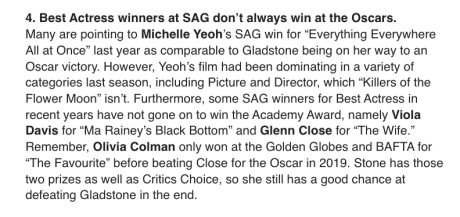
Posted by World of Reel‘s Jordan Ruimy on 3.6.24: “Can Gladstone win the Oscar despite not being nominated by BAFTA and her role being a supporting turn? She appears in less than 1/3 of Killers runtime (56 minutes), whereas Stone is practically in every scene of Poor Things. If Gladstone had been campaigned in the Supporting category then she’d already have that Oscar in the bag.”
** Buttons’ performance resulted in a Best Supporting Actor win.
….in the matter of Kung Fu Panda 4.
I’m not putting down Jack Black or Awkwafina for voicing the characters of Po and Zhen, respectively, in exchange for a sizable paycheck.
Sutton would never beg me to take her to see this DreamWorks parent punisher, but if she did I would give her a gentle hug and suggest that we watch instead…I don’t know, The Empire Strikes Back or something.
…was surging through the system of President Joe Biden (adderall?), but it served him well…sometimes the right drugs are perfect blessings, and Joe needs to keep injecting that magic energy cocktail over and over and over again….keep taking it between now and election day.


@David Poland has tweeted that in tonight’s State of the Union address, he’d like Joe Biden to simply state the unfettered truth, which is that the presumptive Republican nominee for president is a criminal.
Poland: “Everyone keeps dancing around this, but it’s not really a question. Some Republicans want a criminal. A significant portion are considering rationalizing away the fact that they voted for a criminal. [Criminality] is not the lesser of two evils. There is politics, and there is criminality. They are not equal.”
HE says that calling Trump a criminal is going way too easy. He’s a sociopath, a crime family boss, a punk, a fang-toothed dog, a lying scumbag, a total bullshitter, a soul-less hustler and basically a saliva-drooling animal through and through.
The Movie Godz will absolutely not complain if this happens. Who really and truly loves Martin Scorsese‘s condemnation-of-evil-white-greedheads Oklahoma film? I don’t know a single soul who loves it. Only the ideological wokeys are hardcore fans. Marty’s brand has stood for excellence and verve for so many decades, going all the way back to Mean Streets. Let this elephant go — just let it go.
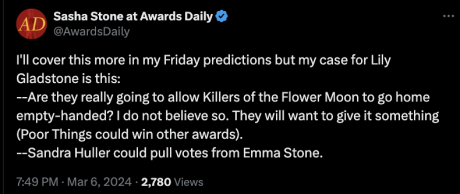
On 9.24.22, or roughly 19 months ago, I tapped out a longish piece about a traumatic encounter with an old pally inside Wilton’s Village Market.
Although I’d regarded this guy as a great friend and an excellent human being for decades, he’d alarmingly turned into a wokester fanatic sometime in ’20 or ’21 or thereabouts. Goaded by his three Millennial-aged daughters, he’d decided I was suddenly allied with society’s bad guys and that I’d more or less become some kind of suppressive, anti-feminist, Harvey Weinstein-like figure.
I’ve seen red over a few things in my time, but my mind turned into molten lava when the Chance Brown condemnation came down. How fucking dare you?
I didn’t mention his name in the Village Market piece, but referred to him as “Strelnikov” as his chilly ranting reminded me of Tom Courtenay‘s communist enforcer in David Lean‘s Doctor Zhivago (’65).
His actual name was Chance Browne, a cartoonist (“Hi and Lois“) and musician and an all-around good fellow until the Great Awokening turned his head around.
I’m revealing Chance’s identity because (deep breath) he died last Friday afternoon from pancreatic cancer. His family requested radio silence at first, but Chance’s sister broke the news on Facebook a day or two later, and I’m figuring “okay, olly olly in come free.”
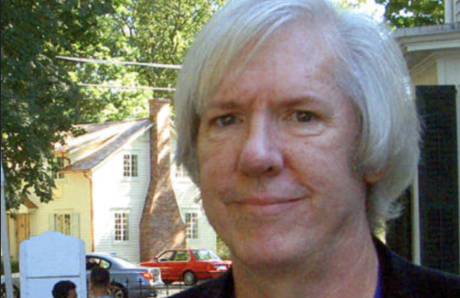
Here’s what I posted a day after his passing:
“The greatly talented, often joyful and widely beloved CHANCE BROWNE has left the earth and has merged with the infinite. He is now at one with legendary astronaut Dave Bowman at the end of 2001: A Space Odyssey, gazing down upon our blue planet with a certain childlike amazement.
“Chance passed yesterday afternoon (Friday, March 1st) around 1 pm. Taken down by pancreatic cancer, which he had only recently discovered.
“My heart is broken but what else can I or anyone else say? This is obviously a different deal than the passing of John Lennon (43 years and 2 months ago), and yet it feels emotionally similar in a certain way. To me at least. This sounds kinda silly but I thought Chance would just keep on Chance-ing forever. I really did. I thought he’d just keep going. I really thought we all had an eternal lease on life.
“I am shocked and thrown by this terrible waffle-iron…this feeling of having been clobbered on the side of my face or my head or whatever. I haven’t felt this shocked and thrown by the passing of a good and gentle soul in such a long time. But it’s happened. We may as well grim up and face it and join hands and ask ourselves who we are now and who we used to be, and where we’ve been and where we’re all going. We’re all getting there, no exceptions. Chance has simply left a bit earlier. He’ll almost certainly be waiting.”
Chance found out that he was more or less doomed a month and a half ago. On the afternoon of 1.17.24 he messaged a mutual friend, Mike Connors, as follows: “I have bad news, my brother. I just got diagnosed with stage 4 pancreatic cancer (!). I’m starting chemo tomorrow. I feel like dice must feel when they get shook up and thrown down the table. I may last another six months to a year or more with chemo. I love you and I’m sorry to leave the party too soon. I’ve got some time so we’ll talk.”
Alas, this never happened. This message was their last exchange.
Untimely passing cartoon, roughed out by Chance 11 or 12 years ago:
